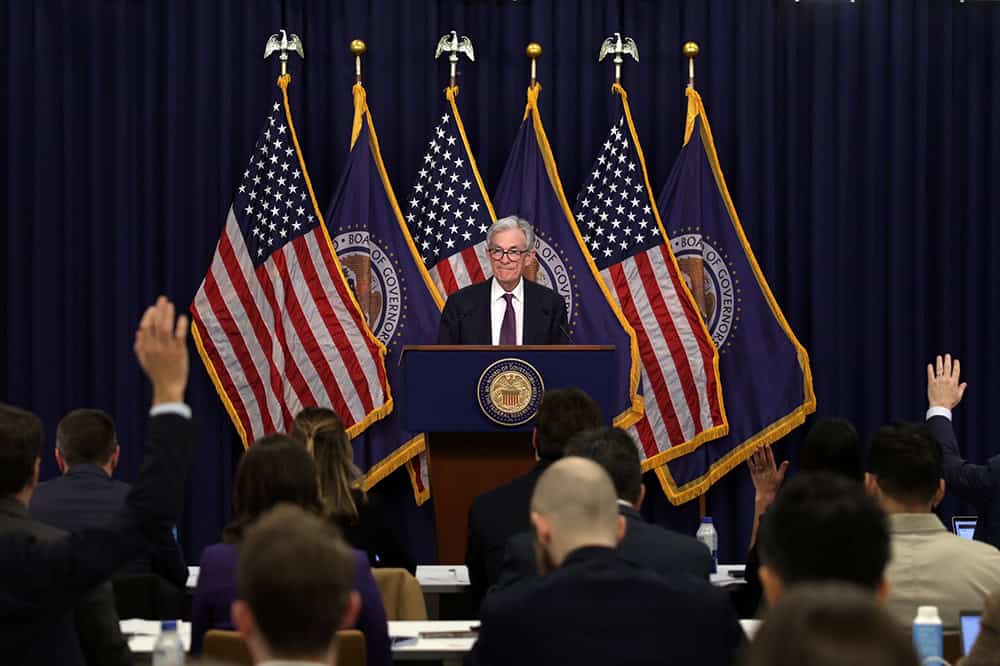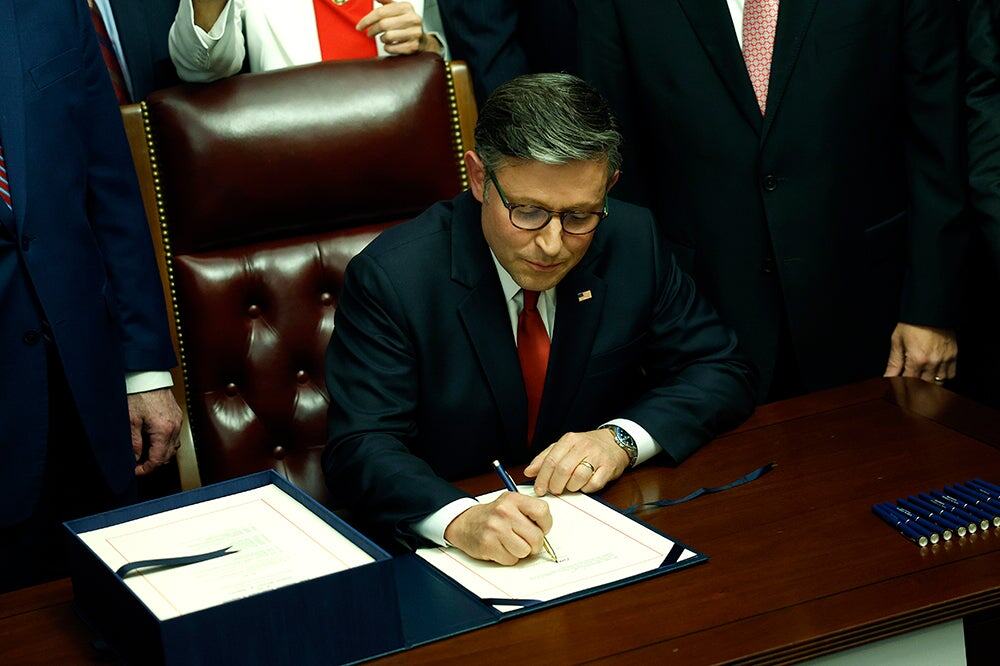Peterson Foundation Convenes Fiscal and Economic Experts to Answer the Question: Where Do We Go From Here?
Ten New Papers and Upcoming Virtual Event Highlight Policy Solutions on Economic Recovery and Rising Debt as America Emerges from Pandemic
NEW YORK — The nonpartisan Peter G. Peterson Foundation released today ten new papers from leading fiscal and economic experts to help illuminate and improve the understanding of this critical moment, with America’s economy in recovery, our debt rising unsustainably, and our nation still grappling with a devastating pandemic. The authors, with diverse ideological perspectives and deep policy expertise, offer ideas and solutions to help navigate this unique moment and work towards an inclusive, prosperous and moral economic system for the country’s collective future.
The essays assess and provide insights on current issues including: America’s unsustainable fiscal trajectory; economic inequality; pandemic impacts; inflation implications; the potential for rising interest rates and costs; the influence of cryptocurrencies; market perceptions of America’s debt load; tax policy; and Social Security.
To help bring this critical discussion to life, the Peterson Foundation will host a virtual Economic Forum on Wednesday November 10 at 11a.m. featuring two of these authors, William Gale and Sita Slavov. To register for and view the event click here.
“Rarely in our nation’s history have we faced such complex questions and uncertainty related to our fiscal and economic health,” said Michael A. Peterson, CEO of the Peterson Foundation. “The COVID crisis exposed longstanding inequities in our society, and we also face many other significant challenges, from climate change to global threats to infrastructure needs at home. All of these critical issues will require significant resources, yet we remain on a fiscal trajectory that, if ignored, will only make solving them more difficult. We have the responsibility to chart a more sustainable path ahead to ensure we have the resources we need to meet the known and unknown challenges of the future. These twelve outstanding authors represent a range of diverse viewpoints on the fundamental questions of how to improve our fiscal and economic future in order to meet these critical challenges. At a time of such extreme partisan divides, bringing together bipartisan voices provides us all with the valuable opportunity to consider multiple pathways forward to creating the more prepared and prosperous nation that we all want.”
The Peterson Foundation is proud to convene this esteemed group of experts to help answer the question: Where do we go from here? The following is a listing of the participants and essays, which are fully available here.
- “Smart Fiscal Policies for a Better Future” by Wendy Edelberg, Director of the Hamilton Project, The Brookings Institution
- “A Path to Economic Prosperity” by Jason J. Fichtner, Vice President and Chief Economist, Bipartisan Policy Center and Shai Akabas, Director of Economic Policy
- “The Economic and Fiscal Road Ahead” by William Gale, Arjay and Frances Miler Chair in Federal Economic Policy, The Brookings Institution
- “A Valuation Approach to Government Balance Sheet” by Zhengyang Jiang, Assistant Professor of Finance, Kellogg School of Management, Northwestern University
- “Debt Matters” by Dana M. Peterson, Chief Economist and Center Leader of Economy, Strategy and Finance and Lori Esposito Murray, President, Committee for Economic Development, The Conference Board
- “Long-Term Fiscal Balance and the Social Security Trust Fund” by James Poterba, President and CEO, National Bureau of Economic Research
- “Fix Social Security and Medicare to Protect Other Priorities” by Brian Riedl, Senior Fellow, Manhattan Institute
- “Policy Makers Should Act Now to Address the Long-Term Fiscal Imbalance” by Sita Slavov, Professor of Public Policy, Schar School of Policy and Government, George Mason University
- “Fiscal Space for Future Generations” by Marc Sumerlin, Managing Partner, Evenflow Macro
- “Through the Looking Glass: The Reverse World of the Pandemic Economy ” by Diane Swonk, Chief Economist, Grant Thornton
# # #
Further Reading
Quiz: How Much Do You Know About Healthcare in the United States?
The United States has one of the largest and most complex healthcare systems in the world. Take our healthcare quiz to see how much you know about the cost and quality of the U.S. healthcare system.
The Fed Reduced the Short-Term Rate Again, but Interest Costs Remain High
High interest rates on U.S. Treasury securities increase the federal government’s borrowing costs.
How Did the One Big Beautiful Bill Act Change Tax Policy?
See how OBBBA restructured the tax landscape across four major areas: individual tax provisions, business tax provisions, energy tax credits, and health-related tax changes.


